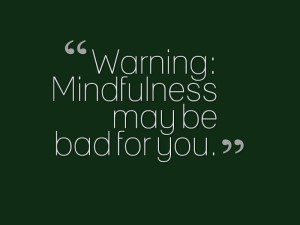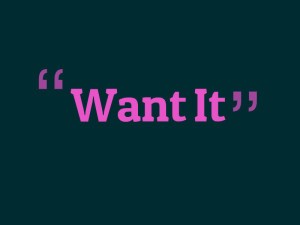Welcome to my blog
Grow & Scale A Business That Will Set You Free
Why Mindfulness Might Be Bad
Mindfulness is all the rage. Everyone’s talking about it. Especially in business.
Mindful work. Mindful leadership. Mindful this; and mindful that.
The big corporations are on board. Like General Mills and Google and Apple and Yahoo and Aetna Healthcare.
Mindfulness has a lot of proponents like Sam Harris and Janice Marturano and Arianna Huffington.
Oh, and there’s research; a lot of research; from impressive places like Harvard and the University of Massachusetts: mindfulness practices will reduce stress and inflammation; they’ll increase acuity and productivity; and they’ll make you happier and give you a greater sense of overall satisfaction.
But here’s the rub. Mindfulness means that you need to show up in the moment. In this moment.
Not swirling; not distracted by the smartphone; not multi-tasking; not racing about; not running around.
Not in the past. Not in the future.
Seeing what is. Experiencing the present. Whatever it is: the good; and the not so good.
Which may be good; or not so good. Because we live is a culture of overwhelm; a state of continuous partial distraction. A culture in which busy has become a badge of honor. A culture in which busy has come to mean something: Like we’re important; significant; successful.
But as Brené Brown says, “It’s easy to convince ourselves that if we stay busy enough, the truth of our lives won’t catch up to us.”
Which of course is the ultimate “problem” with mindfulness: when we show up in this moment, we must confront ourselves. We must confront what’s working in our lives, and what’s not; where we’re full and where we’re empty. What brings satisfaction, what brings joy, and what brings despair. Which relationships work, and which ones don’t.
In the moment, you can’t hide from yourself. The camouflage of busyness is gone.
And, of course, that can be scary. Because you might have to do something different.
So before you you jump on the bandwagon, just realize that there’s a price to this mindfulness stuff.
You’ve been warned.
3 Things Successful People Do
Many folks think that success is like magic. It just happens. It’s a matter of luck; or birthright; or privilege. It’s reserved for the fortunate few.
But actually, success is like a cake recipe. There are ingredients, and particular steps; and if you follow the recipe, you will be successful.
Study successful people. You will see some of these common ingredients.
Here are three of them:
Successful People Focus on High Value Targets
Most of us wake up to a “To Do” list that overwhelms us. Everything looks like it has the same level of urgency and import. But that’s not true.
Successful people know that there are really only a few important things in their day to get done. They apply the Pareto Principle ruthlessly focusing on the 20% of things that lead to the 80% of the results. They focus on what matters most.
And successful people say no. Often.
Steve Jobs once said, “People think focus means saying yes to the thing you’ve got to focus on. But that’s not what it means at all. It means saying no to the hundred other good ideas that there are. You have to pick carefully. I’m actually as proud of the things we haven’t done as the things I have done. Innovation is saying no to 1,000 things.”
Successful people practice leadership expert John Maxwell’s principle, “Say ‘no’ to the good so that you can say ‘yes’ to the best.”
They know that less is more.
Successful People Don’t Work Like Machines
Our industrial age mindset is that, in order to be successful, we need to work longer, harder, faster; that the more time we put in, the more successful we will be. Show up early, leave late, work overtime, nights, weekends, holidays: that’s the path to success.
Successful people know that we’re not built like machines. They know that, just as we sleep in rhythms, our awake time has rhythms as well. They know that humans work best in 60 to 90 minute segments; and that throughout the day, they need to take breaks to recharge their minds and refocus their attention.
Successful people know that, in order for peak performance to be sustained, they can’t work 24/7/365. They know that performers and athletes and artists at the top of their games ‘practice’ their crafts for 5 or 6 hours a day; and then turn their attentions elsewhere.
They know that the secret to success is not working harder; it’s working smarter.
Successful People Take Care of Themselves. First.
Most folks, especially those of us in service-related businesses, charge into the day, never focusing on their most important resource: themselves. They give and they give and they give some more. Until there’s nothing left. They know they’ve heard that old schpeel from the airline attendant about the oxygen mask and putting it on first before helping others. But for some reason, they believe that the adage doesn’t apply to them; that they won’t end up dead on the cabin floor.
Successful people know that in order to show up in the world, serve at a high level, and really make an impact, they need to take care of themselves first. They know that you don’t run a high performance vehicle around and around the track without ever stopping.
Successful people stop. They fuel their bodies with good food; they hydrate; they rest; they sleep. They fuel their minds with good books and good conversation. They nurture their spirits with time for reflection, mindfulness and meditation.
Successful people surround themselves with others on the path with similar values and powerful visions. They know that they don’t want to be the smartest person in the room; that they constantly want to be growing and learning and called ever higher.
Successful people know that when they take care of themselves first, they can change the world.
How’s your recipe? Is it time for a new one?
Just Start
Starting out, even when things aren’t perfect, even when conditions aren’t quite right, is one of the most important of all success strategies. Because, the truth is, that for most endeavors, conditions are never really quite right.
I thought about this success principle as I stood high above the trees looking out on one of the most magnificent vistas imaginable.
The day hadn’t started out suggesting that such a moment might be possible.
Indeed, long before the alarm would go off, I could hear the rain beating against the roof of the motel: a cold, heavy February rain in the White Mountains of northern New Hampshire.
I pulled the blankets up and rolled over in the darkness, sure that it was way too snotty to even consider venturing out.
Two hours later, we sat at the Dunkin Donuts. Our climbing packs were packed; the gear was ready. And the rain continued to pour… just freezing as it hit the surface. Nothing suggested even remotely that it was a good idea to strap on snowshoes or crampons and disappear for a day into a range that routinely and indiscriminately likes to kill its visitors. 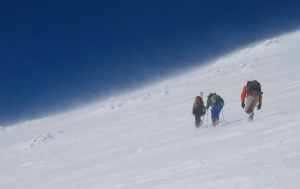
A half mile from the trailhead, the rain tapered to a light mist. The temperatures were mild. The wind light. And, before the day was out, the sun poked through the clouds. It was a glorious fun-filled satisfying day on one of my very favorite mountains in the world.
It would have been easy to stay in bed.
Now I am not suggesting that you should be reckless; or act without thinking; or start out unprepared; or not consider contingencies.
But that’s not the challenge that most people face.
Most folks when they’re thinking about starting out on a project – a new career or business, a book, a fitness program, a product launch, a new relationship – want to wait until everything is in place, until conditions are perfect, the set-up ideal. Life is not like that (in case you haven’t noticed). Conditions are never ideal; all of the pieces are never in place.
You’ve gotta start out… and see what happens.
Martin Luther King, Jr. said, “Take the first step in faith. You don’t have to see the whole staircase, just take the first step.”
Imperfect action is still action; imperfect progress is still progress. And sometimes when you start out – in fact more often than not – conditions turn in your favor. It’s as if the Universe recognizes your boldness and says, “Ah ha, she’s serious;” “Hmm, I guess he means it this time.”
You are rewarded for your audacity, for your courage; and for your faith: Faith in the abundance of a benevolent Universe; faith in the knowing that you will always find the path; faith in the power of your own inner strength.
Brené Brown writes, “Only when we are brave enough to explore the darkness will we discover the infinite power of our light.” “Be brave with your life,” she says, “so that others can be brave with theirs.”
You have gifts that the world needs desperately. Conditions will never feel ‘right’ to venture out with them.
You need to start anyway.
That Lie You Tell
I want to talk with you about that lie that you tell.
That one you tell all the time. 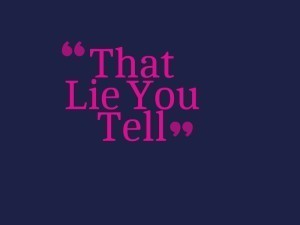
To yourself; to anyone who will listen.
That soothing lie.
That seductive pernicious one.
The one that goes like this: There’s time.
That there will be time to go on that trip you want to take, that second honeymoon, that book you want to write, the degree you want to get, the art you want to make, that new job, the new career… .
That there will be time to heal the rift, sooth the hurt, fulfill the dream.
That there will be time to connect with your precious boy, your sweet girl, that beautiful grand child.
That there will be time to walk hand in hand on the beach; slow dance in the city square on a summer night; sip the coffee; savor the wine; and watch the sunset.
That there will be time after you get through this quarter, this year; after you’ve made partner; gotten the promotion; after you’ve lost the weight; after the kids are out of high school, or college; or their students loans are paid off; after you’ve finished with the mortgage; after your husband retires; or you retire… .
I want to talk with you about it because 2015 is a distant memory; because you said maybe you’d get to it after the holidays, and it’s the middle of January…. because this year will disappear in the rear view mirror as fast as the last.
I want to talk with you about it because tomorrow is promised to no one; because now is all there is; and now is all you have.
I want to talk with you about that lie you tell… because I tell it too.
What Do You Want?
Hope deferred makes the heart sick,
but a longing fulfilled is a tree of life.Proverbs 13:12
How are you today?
I hope you’ve woken up rested, refreshed and satisfied after your holiday celebrations.
But if, instead, you’re feeling dazed and depleted and maybe a little bit empty, you are not alone.
The holidays are a huge source of stress; a seemingly never-ending torrent of buying and wrapping and eating and drinking and binging and networking and connecting and partying; with concomitant unceasing demands and obligations and expectations.
Likely you’ve spent the last several weeks (or months!) hustling around fulfilling everyone else’s wants. Tending to the needs of others.
Except that you’re not.
It’s today. Another day. And while you can, perhaps, distract yourself for a little while longer, “ringing in” this New Year, the day is coming soon when you will face the expanse – or the abyss – of the year ahead.
So today’s question is not about all those other folks you’ve been attending to. It’s about you.
What do you want?
What do you really want?
Not what you think you should want; or what you think you’re expected to want. Not what your father wanted; or what you’re mother thought would be right. Not what your partner or boyfriend or girlfriend or neighbors want. Not what your clients want. Not what some well-intentioned teacher or guidance counselor wanted for you.
Rather, what is it you want ? For yourself? Right here? Right now?
The folks who read this blog are, by their very nature, givers. The challenge for givers is receiving. The challenge for givers is getting quiet enough to listen to the still small voice that speaks to us of our heart’s desires. The challenge for givers is giving to ourselves what it is we really, really want.
Because, we presume that what we want is bad. Or selfish. Or self-centered.
Or more frequently, we forget what we wanted. We become numb to our heart’s desire.
So on the threshold of a new year, I have a challenge for you: Set aside some time just for you; and spend some time asking yourself (and perhaps journaling about) these questions:
- If I could make my life any way I wanted it, what would my ‘perfect’ day look like? My ‘perfect’ week? What time would I get up? What would I wear? Who would I spend my time with? What work would I do? What projects would I pursue? What travels would I take? What would my ‘perfect’ life look like?
- If this were my very last year on earth, what would I do? Would I stay in the same relationship; would I keep the same job; would I hang out with the same people; would I go the same places; would I do things the way I’m doing them right now?
- If money were no object, if I won the $30 million dollar Powerball, what would I do? After I bought all the toys I wanted, where would I go; who would I go with; where would I spend my time; what experiences would I want to create; what legacy would I want to leave?
Because here’s what’s true: Those whispers that are in our hearts, those dreams that we have, those projects we want to create, those places we want to go, the empires we want to build, the impact we want to make… they’re not random musings; they’re not accidents. They are the call of our Spirit, the Divine within us, showing us – telling us – the way.
So think. Write. Draw. Free flow. Tear down the boundaries. No limitations. Let your imagination run wild.
And then get busy. Because, that’s what you want. That’s what you really want.
That’s your heart’s desire.
________________________________________________________________
If this is a challenge for you, then you are not alone. It’s easy to lose touch with what it is we really want. I can help you find that place again. Email me: [email protected]
DOWNLOAD your FREE BOOK!
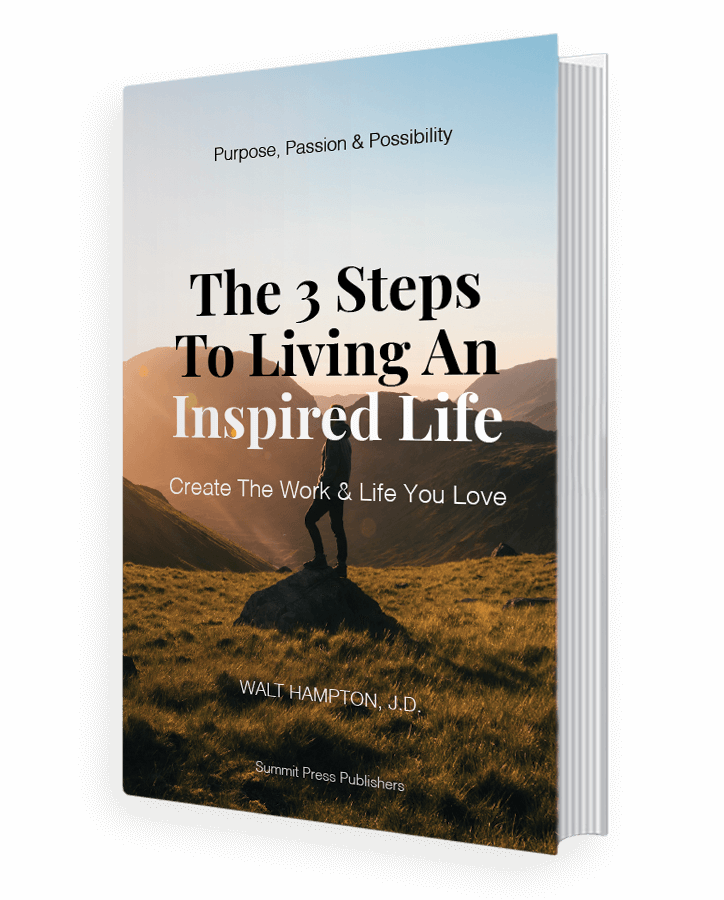
DOWNLOAD Your Free E-Book NOW! Click Below And Get Going!
Click below for your copy of Journeys!
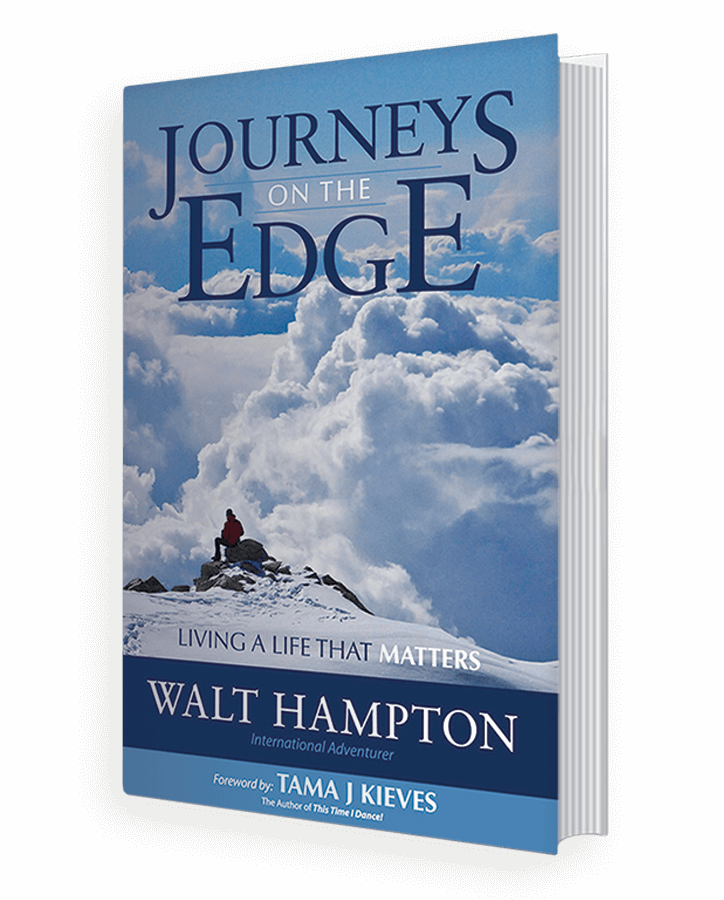
You’ll Get A Signed Copy!
Click on the button for your copy of my brand new book “The power principles of time mastery!”
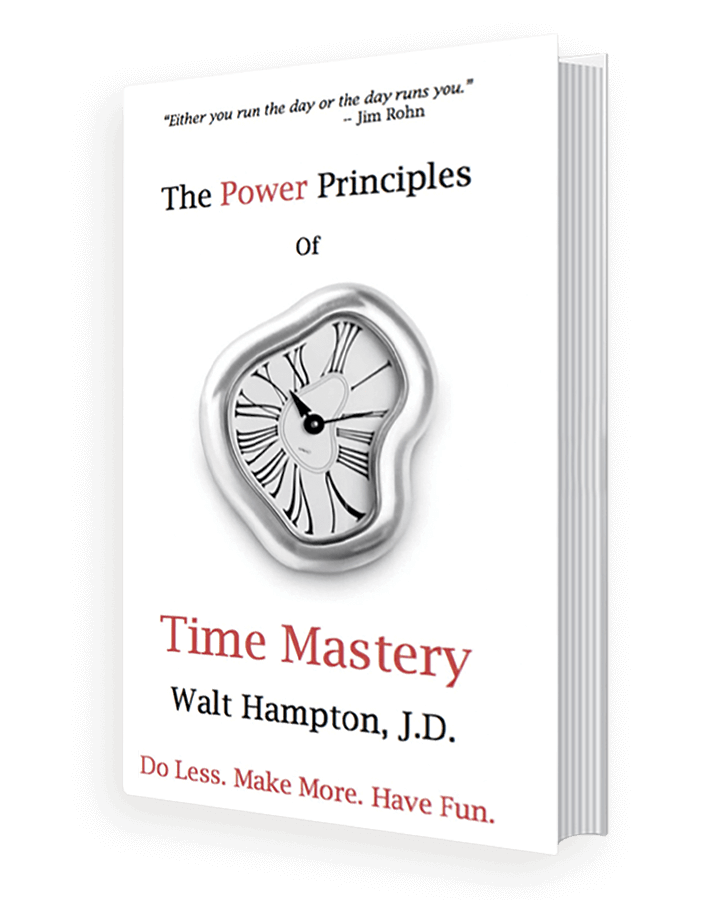
You’ll Get A Signed Copy!
Categories
Adventure
Finding The Way
Journeys
Leadership
Success
Ultra Training
